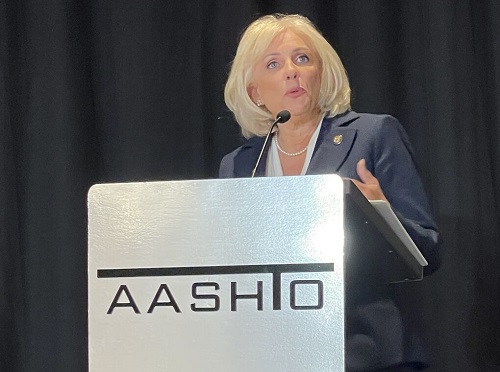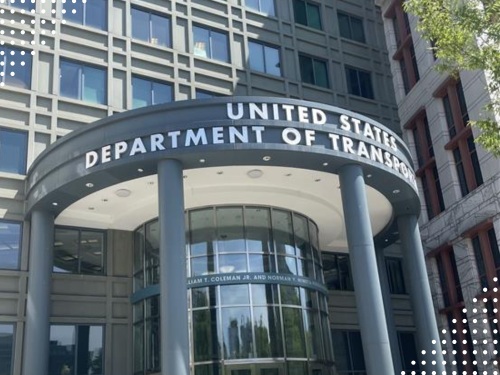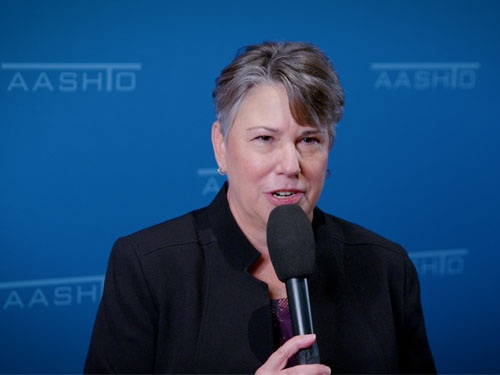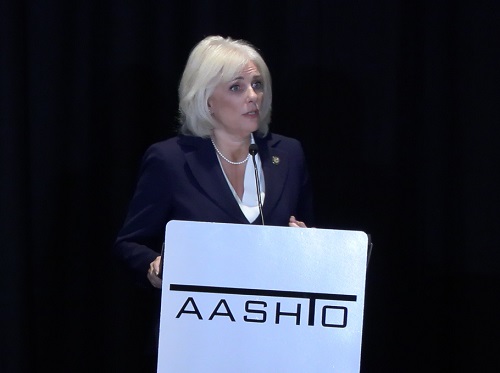During a keynote speech at the 2024 AASHTO Safety Summit, Jennifer Homendy (above) – chair of the National Transportation Safety Board – called on federal, state, local, and private sector leaders to “expand their radius of compassion” in order to make greater headway on reducing U.S. roadway fatalities.
[Above photo by AASHTO]
“I have a front row seat to our public road fatality health crisis as U.S. roadways have grown more deadly over last several years,” she said at the summit, hosted by the American Association of State Highway and Transportation Officials this week in Houston.
“In the U.S., 95 percent of all transportation fatalities take place on our roads; so, by far, roads are our most deadly mode,” Homendy pointed out.

“Now, while [traffic] fatalities have declined for nine straight quarters, focusing on just that is short sighted. These are not numbers – because when I talk to families after crashes, I am not talking to numbers,” she said.
“While there is some progress [there is] still a lot of work to do. We need to treat collisions as an outrage and a tragedy. We need to build a world where there are no crashes,” Homendy emphasized. “That means pursuing strategies outside our comfort zones and expanding our radius of compassion, for I am deeply concerned the gains we’ve seen [in reducing fatalities] will be reversed.”
That also means engaging in across-the-board safety efforts, Homendy stressed; from beefing up enforcement in order to combat speeding and impaired driving to designing safer roads, making more investments in safety technology, and strengthening efforts to educate children about safe traffic practices.
“It’s too late when we get to teenagers about the dangers of impaired driving; we need to teach that to elementary school students,” she said. “I have to tell you, we still need enforcement; we [need?] that deterrent on our roads. We need to do more on stopping impaired driving. We need more post-crash care manpower – we need help recruiting firefighters and training for first responders. For this is an all-hands-on-deck crisis. We have a long way to go.”
 Top Stories
Top Stories
USDOT Makes $1.5B Worth of BUILD Grants Available
December 19, 2025 Top Stories
Top Stories

